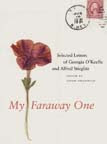 Set on a remote tract of land along the James River in Surry County, Virginia, is an extraordinary gem of colonial architecture ~ Bacon's Castle. A rare survivor. Built in 1665 by a wealthy landowner, Arthur Allen, it is the only extant brick Jacobean house in the United States. Featuring unique brickwork, three-part chimneys, and curvilinear gables, the exterior of the original house has changed little in almost 350 years. The most notable modifications include the replacement of the leaded glass windows and the relocation of the main entrance to a 19th-century addition. The first wooden addition was built around 1815, replaced in 1854 by the current brick version.
Set on a remote tract of land along the James River in Surry County, Virginia, is an extraordinary gem of colonial architecture ~ Bacon's Castle. A rare survivor. Built in 1665 by a wealthy landowner, Arthur Allen, it is the only extant brick Jacobean house in the United States. Featuring unique brickwork, three-part chimneys, and curvilinear gables, the exterior of the original house has changed little in almost 350 years. The most notable modifications include the replacement of the leaded glass windows and the relocation of the main entrance to a 19th-century addition. The first wooden addition was built around 1815, replaced in 1854 by the current brick version.The name Bacon's Castle is one that emerged in the 19th century, in reference to the role the house played in the 1676 uprising lead by Nathaniel Bacon, known as Bacon's Rebellion. For many years, the house had been referred to simply as "Allen's Brick House" ~ likely a nod to its contemporary significance as a brick dwelling.
While the house has survived, its original furnishings have not ~ with the exception of a baby's cradle that has remarkably never left the house. The interior is now furnished with period pieces, based on Allen inventories from 1711 and 1755. The house retains the original hand-hewn beams, and some beautiful Georgian paneling installed in the early 18th century by Elizabeth Bray, the widow of Arthur Allen III.
For the garden enthusiasts, it should be noted that Allen's garden has been partially reconstructed based on archaeological investigations.

 (more photos here)
(more photos here)

















10 comments:
Romantic and evocative place. Squint just little, and it could be a small Sussex manor house.
Have you ever read either of Thomas Tileston Waterman's excellent books about early Virginia architecture?
A charming English country house KDM
That chimneypiece is pretty f'ing fantastic!
Amazing house & amazing garden + fine photos. Thank you.
You did a beautiful job with this post and the photographs are lovely too! I feel wistful just thinking about it...and remembering the enchanting walk to the house.
Cool!! Thanks for the photos - I featured an old home, today, too.
-Trish
An amazing physical link to 1665. It is difficult to imagine what America must have been like then, the sense of unchartered territories just over the horizon.
I have always wanted to visit this house, and always forget to do so when in the area. Thank you for this reminder of an often-overlooked example of one of the oldest survivors of our nation's historic architecture.
I've never heard of this house, so thanks for the introduction. And just adore that daisy field trouvee photo!
DED ~ Yes! Of course, I even have a first edition of Waterman. What an interesting guy...have been thinking I should do a blog post on him.
KDM ~ yes! The gentleman and I had quite an "ah-ha" moment à la Attingham.
AD ~ I am in complete agreement.
BWS ~ I wish someone would give them a ton of money so that they could fully restore that garden. Can you imagine...a 17th-century American garden. wow.
mom ~ stop the car! stop the car!
Trish ~ loved seeing your post. It is wonderful to learn about all these great old places.
Emile ~ America in 1665 must have been a remarkable place. Isolated and wild. I keep wondering what people must have thought when they saw this brick manse rising out of the Virginia countryside.
Reggie ~ it is an effort to get there. But so worth it. Plus, you can pick up a Surry ham on your way home...
Ms. Wis. ~ I don't think many people have heard about this house. It is so remote!
Post a Comment